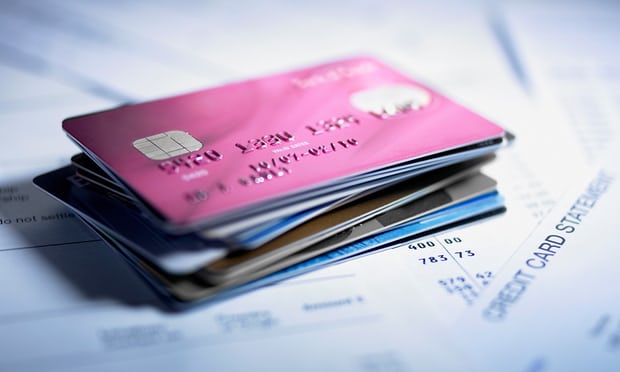

Labour analysis finds unsecured borrowing could exceed £19,000 per household by end of parliament.
ohn McDonnell has said the UK is in the grip of a personal debt crisis with levels of unsecured borrowing predicted to hit a record of £19,000 per household by the end of this parliament.
The shadow chancellor said the increase in debt, to more than £14,000 per household this year, was alarming.
Analysis from Labour shows unsecured debt is on course to exceed £15,000 per household next year and could go on to exceed £19,000 per household by 2022 if it follows the current trajectory.
It is understood Labour plans to focus on the issue in the new year, warning that the continuing squeeze on wages and the high level of inflation are contributing to high levels of personal debt.
On Wednesday the Resolution Foundation, a thinktank, predicted that the stagnation in real wages was set to continue throughout 2018 and may only begin to lift towards the end of the year.
McDonnell said: “The alarming increase in average household debt already means many families in our country are struggling over the Christmas period. The Tories have no real answers to tackle the debt crisis gripping our country and have no solutions to offer those struggling to get by as prices run ahead of wages.
“The next Labour government will introduce a £10 per hour real living wage, scrap student fees, end the public sector pay cap and cap interest on consumer credit to build an economy for the many, not the few.”
He called on the government to intervene to head off the crisis, arguing that more families were being pushed deeper into debt as wages failed to keep pace with living costs.
“We have seen with payday loans some companies were making massive profits from people’s financial difficulties. We need to see more action from the government on this issue next year,” he said.
The Labour research was based on the most recent average household debt figures from the Office for National Statistics (ONS) and the most recent economic forecast by the Office for Budget Responsibility (OBR).

Inflation started outstripping pay rises at the beginning of 2017, marking a return to the pay squeeze that took hold after the financial crisis and then begun to ease in 2015.
Figures from the ONS for unsecured personal debt do not include mortgages but are raised by the inclusion of students loans. Debts such as credit cards, store cards, payday loans, bank loans and car loans are also included.
The total amount of unsecured debt was £392.8bn in the third quarter of this year, and Labour’s projection is based on OBR figures for unsecured loans from the economic and fiscal outlook published in November.
Andrew Bailey, chief executive of the Financial Conduct Authority, told the Guardian this autumn that he was concerned about the number of people who needed loans to make ends meet. He pinpointed gig economy workers, who do not have guaranteed hours, as being in special need of credit to smooth their incomes.
The chief financial regulator said the government needed to step in to help tackle the mountain of debt being racked up by the most vulnerable consumers in Britain.
As part of a series examining the billions in unsecured consumer credit amassed by households in Britain, the Guardian found there were 8.3 million people in the UK with problem debts.
The debt charity StepChange released data showing that the proportion of its clients falling behind on payments rose above 40% in the first half of 2017.
theguardian.com

